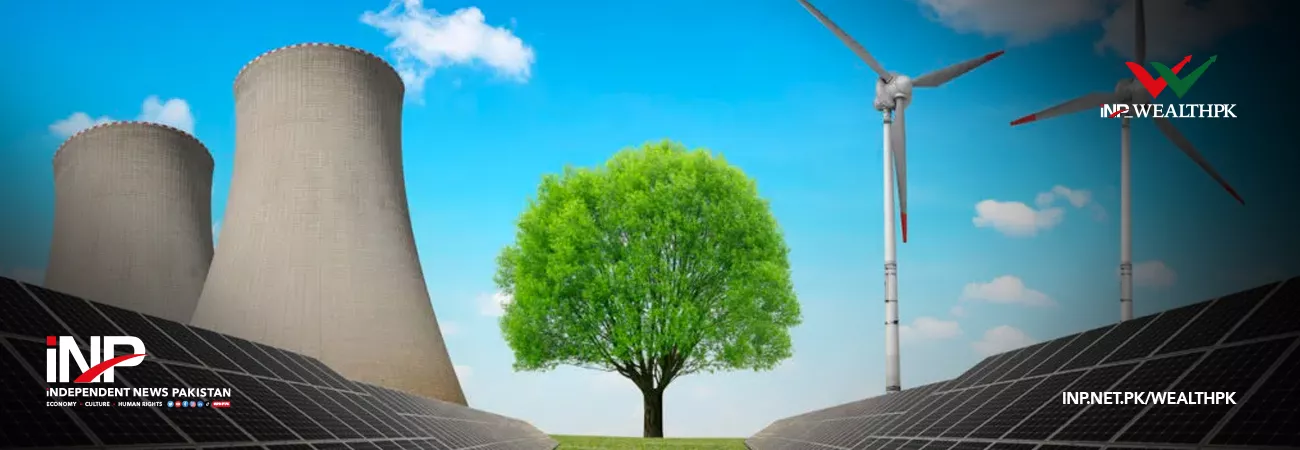INP-WealthPk
Syed Marwan Shah
Despite a lot of potential in the renewable energy sector in Pakistan, the transition in this direction has been modest. Pakistan features a large network of surface water systems in the form of River Indus and its tributaries, a daily average of nine and a half hours of sunshine, and globally recognised wind corridors. Ijaz Ali, a research economist at the Centre for Business and Economic Research, said while talking to WealthPK that Pakistan has a lot of potential in renewable energy but it still has not been fully realised, and the shift in this direction has been on the slower side.
In Pakistan, green energy technologies have a relatively weak market hold and poor penetration rates compared to conventional technologies. “The general public’s awareness and its incorrectly perceived economic competition with conventional electricity providers are the causes of this delayed progress. The lack of developed infrastructure is another factor preventing the spread of renewable energy technology, as the requirement for electricity in the undeveloped parts of the country is much lower due to the lack of a planned network of transmission lines,” he pointed out.
Syed Mujahid Shah, an energy consultant at the National Engineering Services Pakistan, told WealthPK that Pakistan has a number of renewable energy policies and some positive aspects.“However, on the whole, there are still questions about whether or not these have been sufficient to propel huge development in the renewable energy sector,” he said.
“Recently, the government has undertaken a major and challenging initiative to produce renewable energy, but Pakistan’s national grid is not in a good shape at this time,” he pointed out.He said a technological overhaul has not been conducted in order to improve its ability to absorb renewable energy more effectively because of its variability and irregularity.
According to the National Electric Power Regulatory Authority (Nepra) annual state of the industry report, 22,298 GWh of electricity was lost through the transmission and distribution of DISCOS (power distribution companies) during the fiscal year 2021–22. As a result, Pakistan has suffered nationwide power outages due to fragile distribution systems and high grid losses. “For power systems to utilise top-notch solar and wind resources, accelerating variable renewable energy generation necessitates grid expansion, improving transmission lines, and required modifications,” he said.
In order to achieve renewable energy targets, the government needs to rationalise the tariff regime. Secondly, more public and private sector investments are needed to upgrade power sector transmission and distribution infrastructure. Thirdly, to curtail circular debt, timely bill recoveries must be ensured. And lastly, governance structure must be improved to cut theft and inefficiency.
Credit : Independent News Pakistan-WealthPk




